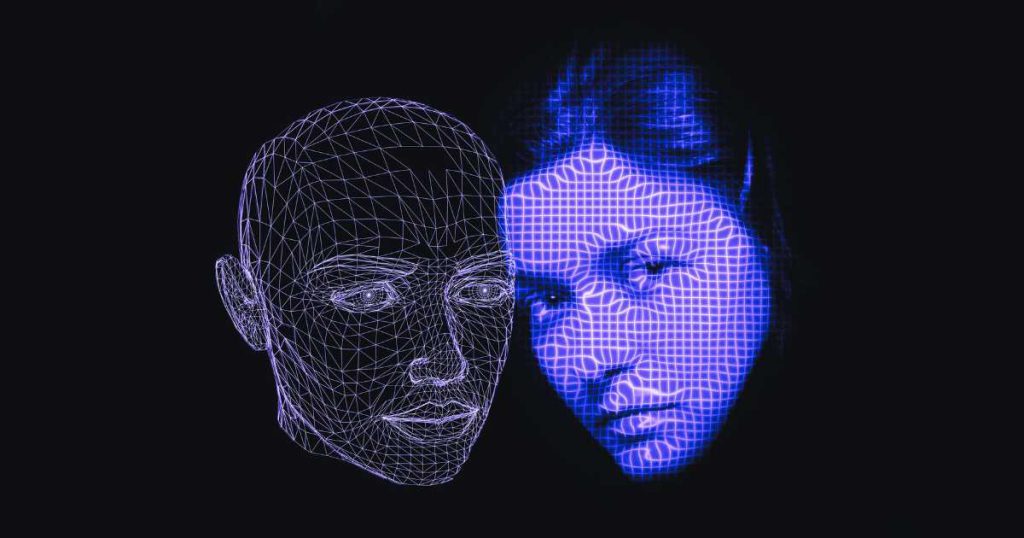Dreams about deception, whether being deceived or deceiving others, often symbolize feelings of insecurity, mistrust, and self-doubt in one’s waking life. These dreams may reflect actual instances of dishonesty and betrayal, or they may represent more generalized anxieties about being taken advantage of or not being true to oneself.

By examining the specific context and emotions of the dream, the dreamer can gain valuable insights into their subconscious fears and vulnerabilities, and work towards developing greater self-awareness and authenticity in their relationships and interactions.
Key Takeaways
- Dreams of deception often reflect feelings of insecurity, mistrust, and self-doubt in waking life
- These dreams may symbolize actual experiences of dishonesty or more generalized fears of betrayal and inauthenticity
- Examining the specific details and emotions of the dream can provide insights into the dreamer’s subconscious vulnerabilities and anxieties
- Working with these dreams can help the individual cultivate greater self-awareness and authenticity in their relationships and life path
Symbolism of Deception in Dreams
The truth can hurt, and sometimes it destroys. Lies have the power to protect and inspire, and deception can serve noble ends. Self-deception sustains the illusions that sustain us. Deception and self-deception are essential to self-maintenance. As unsettling as it may be, false beliefs and even lies are crucial for human flourishing.
Philosophers have long placed too high a price on truth, naively failing to recognize the importance of deception for social functioning and individual wellbeing. Both deception and self-deception have a complex nature and are vital to communication. Lies and self-deceptions play a key role in social interactions.
Defining deception and lies is notoriously difficult. It may be the motives behind a deception, and not the deception itself, that people find morally troubling. Nevertheless, while deception may sometimes be a necessary evil, the truth is still to be prized.
When deception shows up in dreams, it’s worth paying attention to. Dreams about being deceived suggest that the dreamer feels especially vulnerable to manipulation or betrayal in some area of their life. The details of the dream can provide clues about where those insecurities lie:
Dream Element Get free Dream Interpretation by using our Dream App | Possible Interpretation |
|---|---|
Being cheated on by a romantic partner | Fears of abandonment or worries about the stability of the relationship |
A friend or coworker lying or going behind your back | Concerns about loyalty, trust issues, imposter syndrome at work |
Being conned or scammed | Feeling gullible, worrying about being taken advantage of financially or emotionally |
Uncovering a web of lies and conspiracies | Paranoid thinking, difficulty discerning truth from fiction in waking life |
Dreams of deceiving others can be equally revealing. They may point to areas where the dreamer is not being fully honest with themselves or others:
- Cheating on a test or breaking rules in a dream may reflect real-life guilt about cutting corners or not living up to one’s own ethical code.
- Lying to a partner or friend in a dream could represent actual dishonesty in the relationship, or a more symbolic form of betrayal, like not being emotionally present or authentic.
- Presenting a false image or persona in the dream may reveal the dreamer’s insecurities and fears that their true self is not good enough.
Whether the dreamer is the perpetrator or victim of deception in the dream, these unconscious scenarios usually point to some form of disconnection – from oneself, from others, or from a greater sense of truth and authenticity.
The disconnection often has roots in the dreamer’s waking life and relationships. Past experiences of dishonesty and betrayal can leave lasting scars on the psyche, priming the dreamer to expect and even invite further deception. Without examining and healing these wounds, the dreamer may unconsciously seek out dynamics that confirm their fears and reinforce their sense of mistrust.
Self-deception also frequently plays a role. The dreamer may be in denial about unhealthy situations or relationships in their life, clinging to a false narrative in order to avoid the pain of acknowledging a difficult truth. Or they may be deceiving themselves about their own worth and capabilities, hiding behind masks and illusions rather than stepping into their authentic power.
Dreamwork can be a powerful tool for untangling these webs of deception and reclaiming one’s truth. By engaging curiously and courageously with dreams of deception, the dreamer can begin to identify and challenge the false beliefs and self-betrayals operating beneath the surface.
This inner work is rarely easy or comfortable. Acknowledging one’s capacity for both dishonesty and gullibility can be quite unsettling, even shattering to one’s self-image. Recognizing where one has been complicit in dynamics of deception and betrayal often brings up painful feelings of shame, anger, and grief.
However, dreams of deception ultimately serve as an invitation to greater wholeness and self-honesty. They illuminate the dreamer’s shadow – the repressed aspects of the psyche that are operating unconsciously, sabotaging one’s relationships and sense of self. By bravely facing these shadow qualities and integrating them consciously, the dreamer can transmute past hurts into present healing.
This process begins with acknowledging and validating the painful emotions that often accompany experiences of deception. Whether the dreamer has been dishonest or has been betrayed by others, it’s important to create a safe, nonjudgmental space to feel and express the natural human responses of shame, fear, anger, and sadness.
Stuffing down or bypassing these feelings only perpetuates the cycle of self-deception.
Once the feelings have been honored, the dreamer can start to objectively examine the beliefs and behaviors that have contributed to dynamics of dishonesty in their lives.
This may involve recognizing patterns of people-pleasing or conflict avoidance that have led them to betray their own needs and boundaries. Or it may mean confronting addictive and compulsive behaviors that they have rationalized away.
In some cases, the dreamer may need to take concrete steps to extricate themselves from situations and relationships characterized by chronic deception. This could mean leaving a job where dishonesty is the norm, or ending a partnership with someone who repeatedly lies. Consciously releasing people and circumstances that don’t align with one’s values is a powerful form of self-honesty.
Just as importantly, the dreamer must learn to detect and dismantle their own self-deceptions. This involves cultivating an attitude of radical honesty – a commitment to acknowledge what’s true, even when it’s uncomfortable. It means catching oneself in the little white lies and self-serving justifications, and practicing telling the truth instead.
Journaling can be a helpful tool for this kind of self-inquiry. By putting one’s rationalizations down on paper and examining them objectively, it becomes easier to spot the logical flaws and emotional avoidance driving self-deception. Over time, this practice of self-honesty becomes more habitual, gradually dissolving the need for illusions and pretense.
Another key to overcoming self-deception is learning to love and accept all parts of oneself, even the aspects that feel shameful or unworthy. When we deceive ourselves, it’s often because we’re afraid that the truth of who we are is fundamentally unlovable. By embracing our full humanity, weaknesses and all, we create an inner environment of safety and self-compassion in which real authenticity can take root.
As the dreamer does this inner work, the outer world will start to shift as well. Dynamics of dishonesty and betrayal that once felt inevitable will begin to lose their charge, no longer hooking the dreamer into old reactive patterns.
Healthier, more authentic relationships and opportunities will naturally start to emerge, as the dreamer becomes a vibrational match for honesty and integrity.
This is perhaps the greatest gift of dreams of deception: the chance to alchemize past pain into present empowerment. By bravely facing the hurts and illusions that have held us back, we open to a more expansive way of being – one in which our deepest truth is the most powerful force of all. We discover that our authentic self is far more precious than any false mask or self-betrayal.
In the end, dreams of deception are really dreams of homecoming. They guide us back to the unshakable ground of our own being, inviting us to take off the masks, shed the illusions, and stand naked in the light of what is. In that courageous act of self-revelation, we find the antidote to all deception. We come home to the truth of who we are – and in that truth, we are finally free.
List of Common Themes in Dreams of Deception
- Infidelity and romantic betrayal
- Lies and dishonesty in friendships or family relationships
- Cheating or rule-breaking in academic or professional contexts
- Financial scams and cons
- Uncovering conspiracies and cover-ups
- Presenting a false image or persona to others
- Self-deception and denial about one’s own behavior or circumstances
- Feeling controlled or manipulated by authority figures
- Broken promises and breaches of trust
- Secrets being revealed or hidden truths coming to light
By identifying which of these common themes are present in the dream, the dreamer can start to recognize parallel issues that may be playing out in their waking life. The specific symbols and scenarios of the dream will give further clues about the dreamer’s unique fears, insecurities, and opportunities for growth.
For example, a dream about discovering that one’s partner is cheating might point to actual infidelity in the relationship. But it could also represent the dreamer’s own feelings of guilt around neglecting the partnership, or a more general fear of abandonment shaped by past heartbreaks.
A dream of being scammed out of money could literally refer to financial concerns, or it might symbolize a sense that the dreamer’s time and energy are being wasted in some area of life.
No matter what form the deception takes in the dream, the key is to approach it with open and compassionate curiosity. Dreams have a way of exposing the places we feel most vulnerable and inauthentic. By engaging mindfully with these tender spots, we create space for deep healing and transformation to occur.
This process isn’t about shame or blame, but about taking responsibility for the illusions and self-betrayals that have shaped our experience. When we find the courage to face our shadow, we discover that it contains powerful treasures – the wisdom, resilience, and radical honesty needed to author a more authentic life.
In this way, dreams of deception ultimately lead us to a profound truth: that our most painful illusions may be the very doorways to our deepest liberation.






